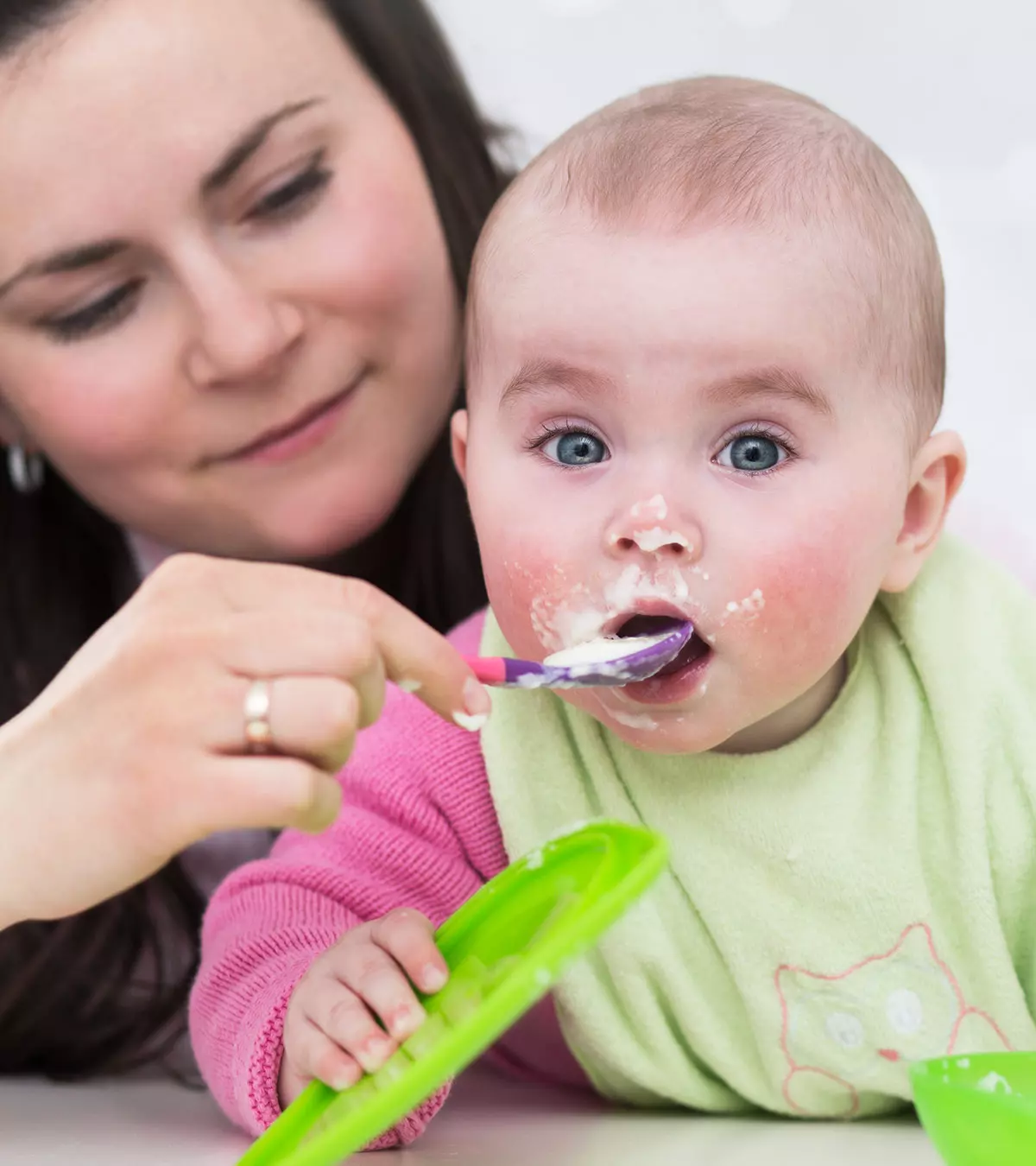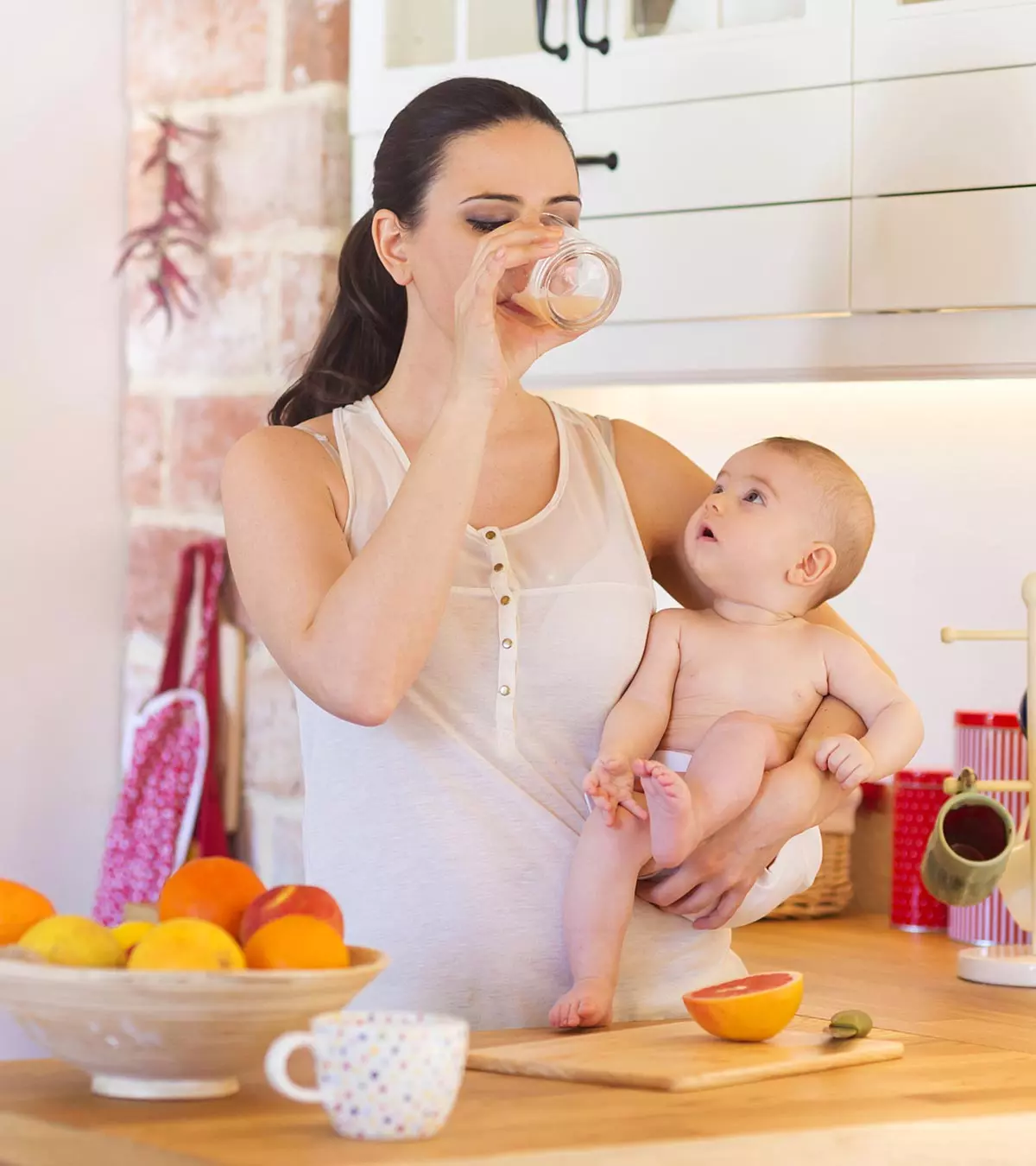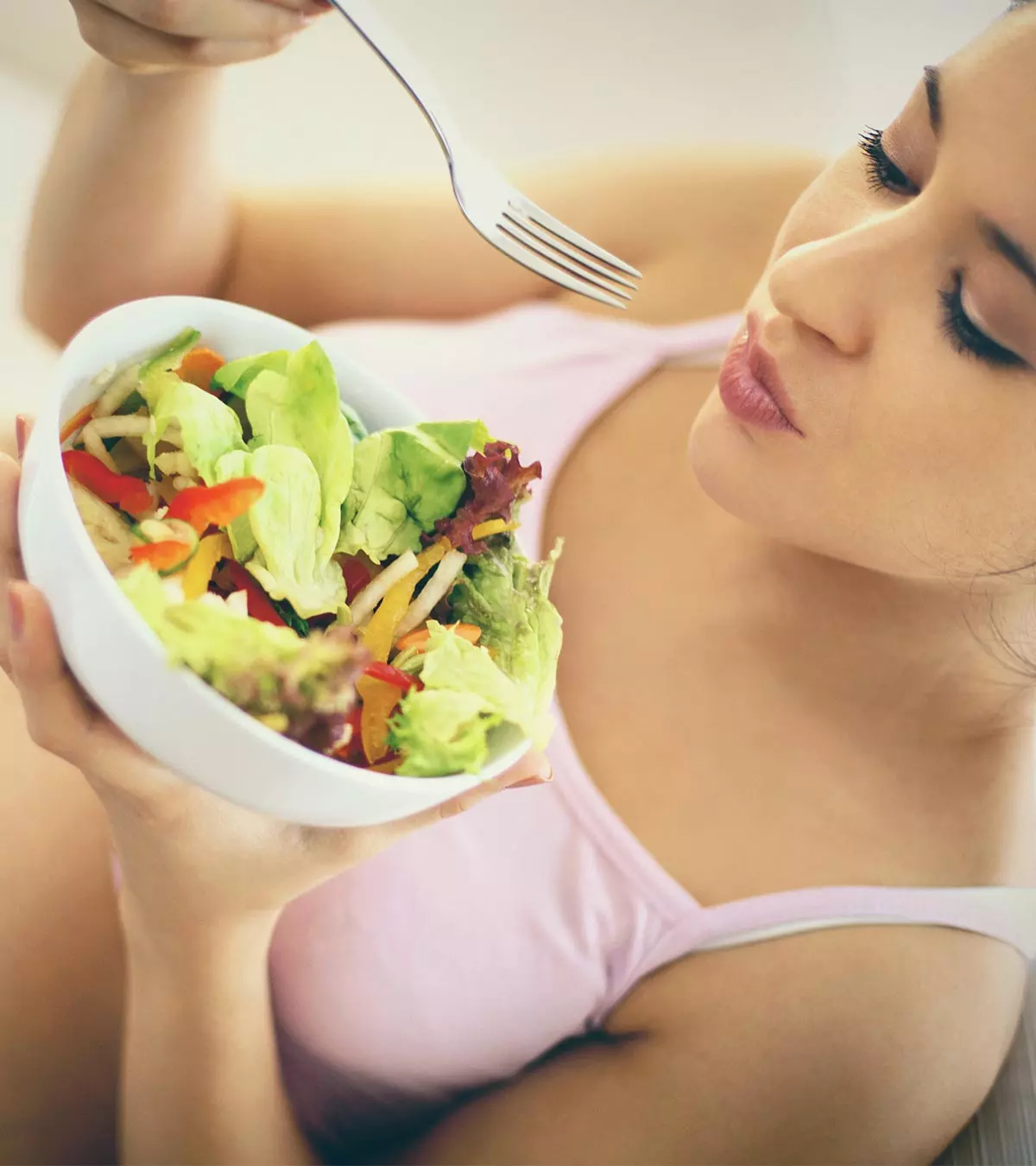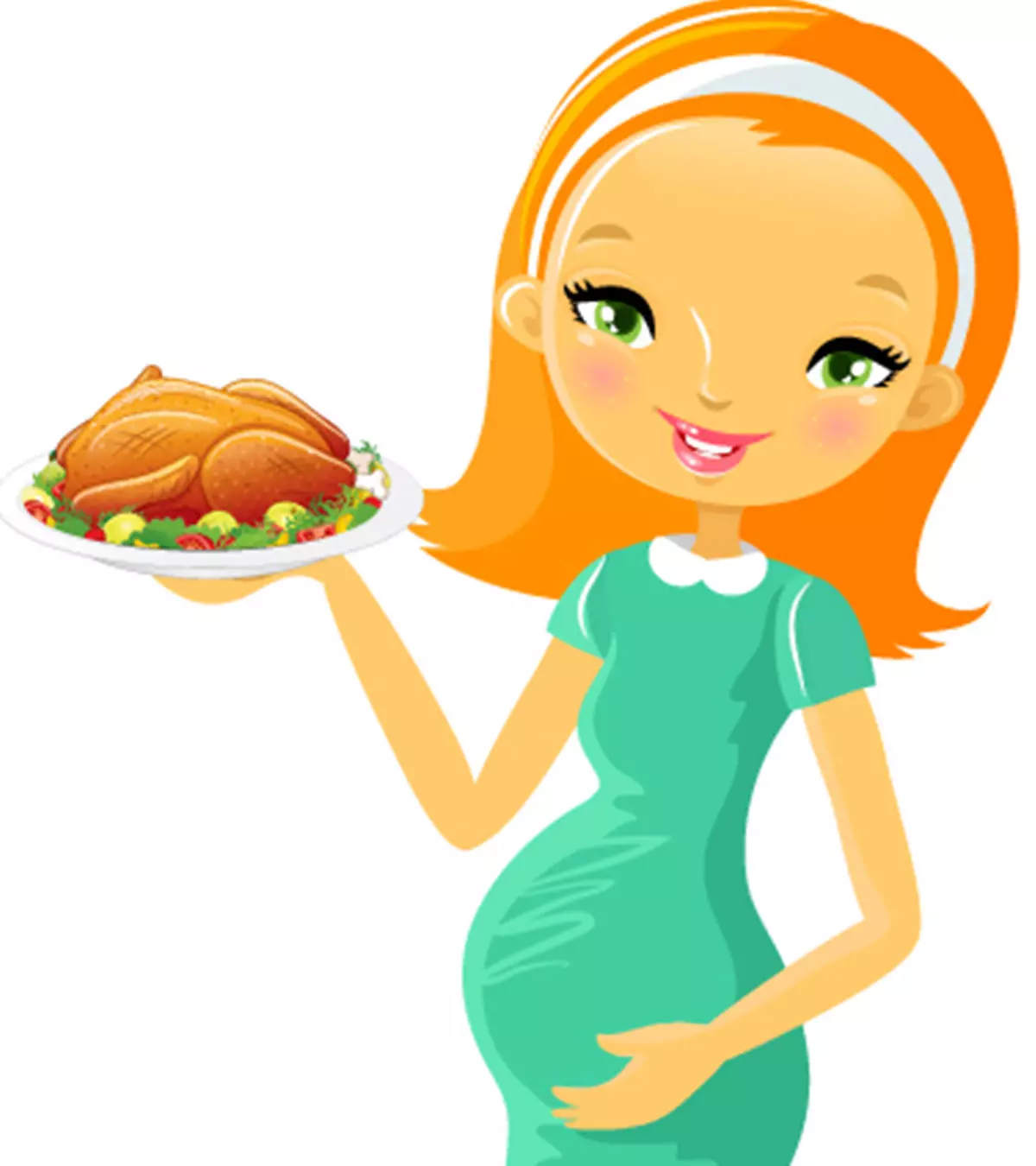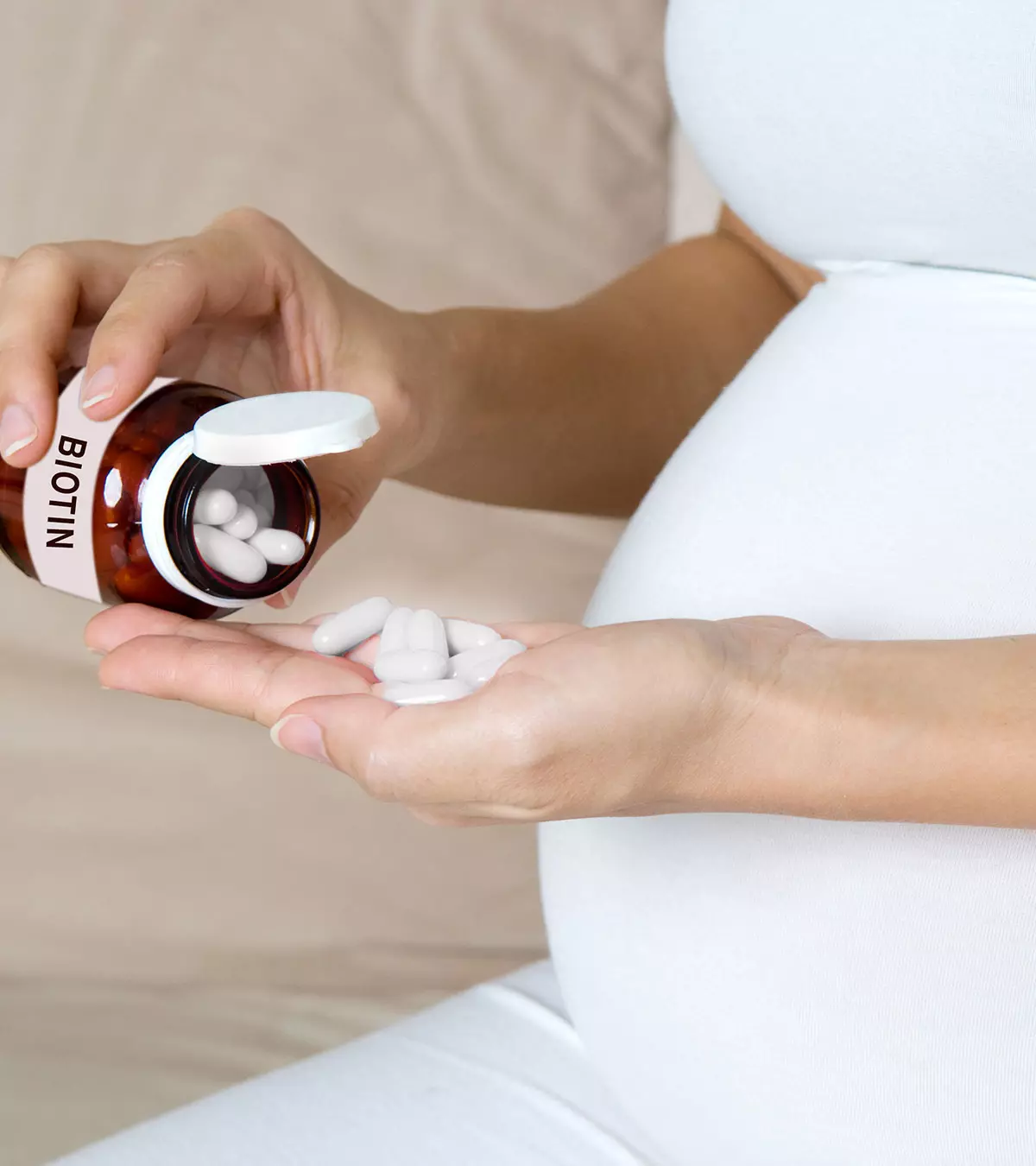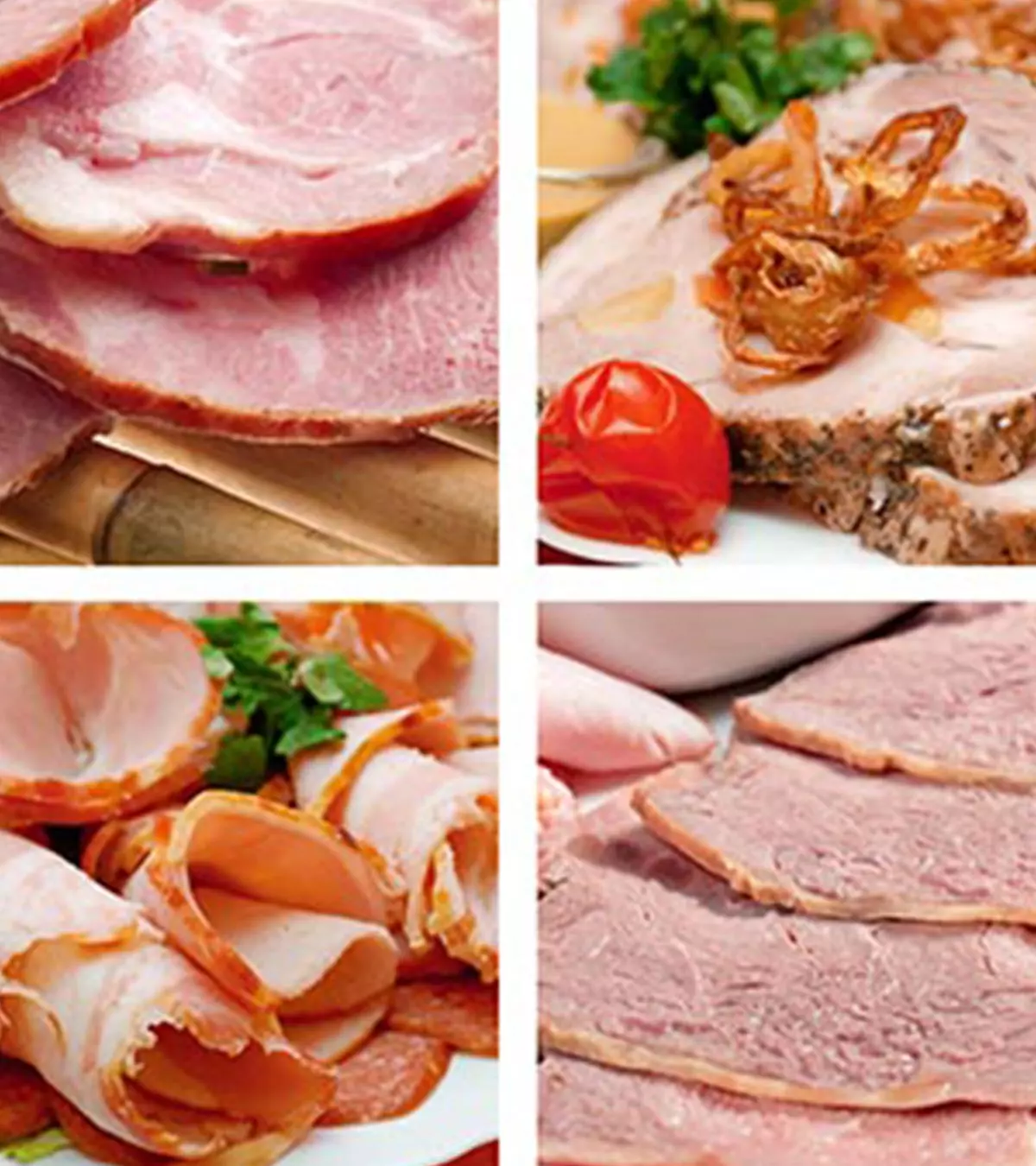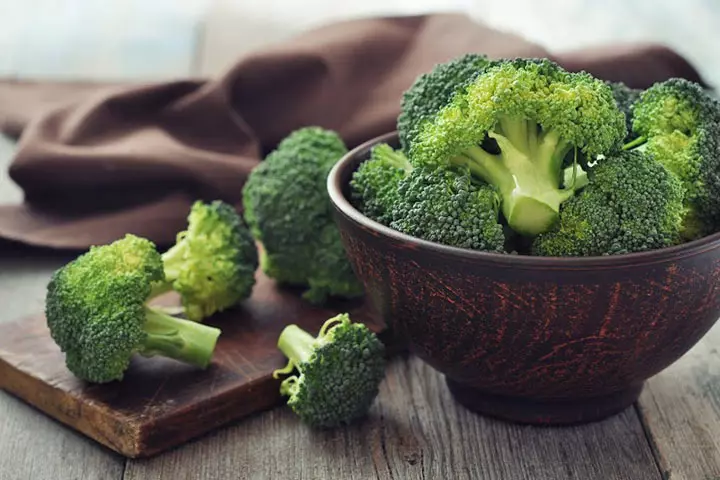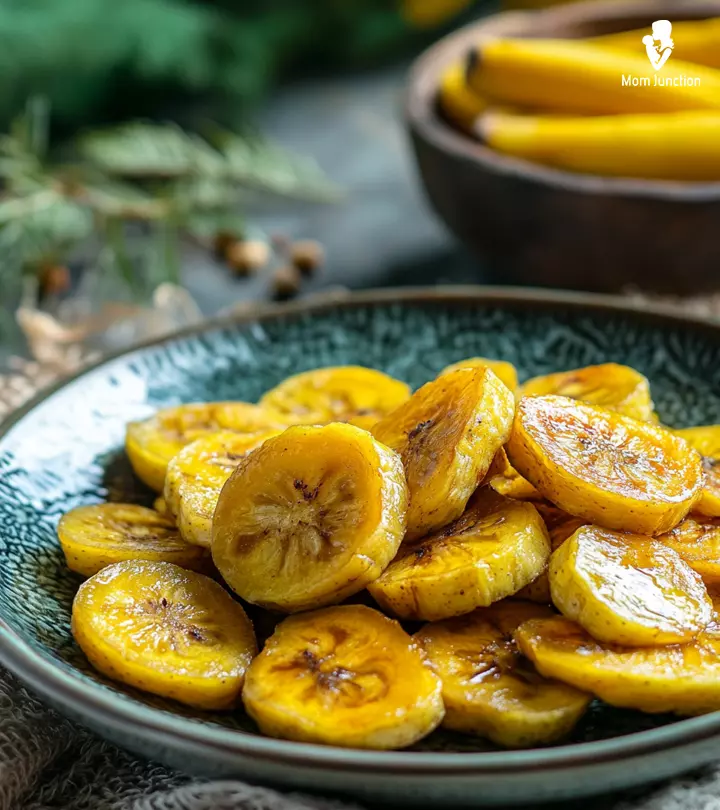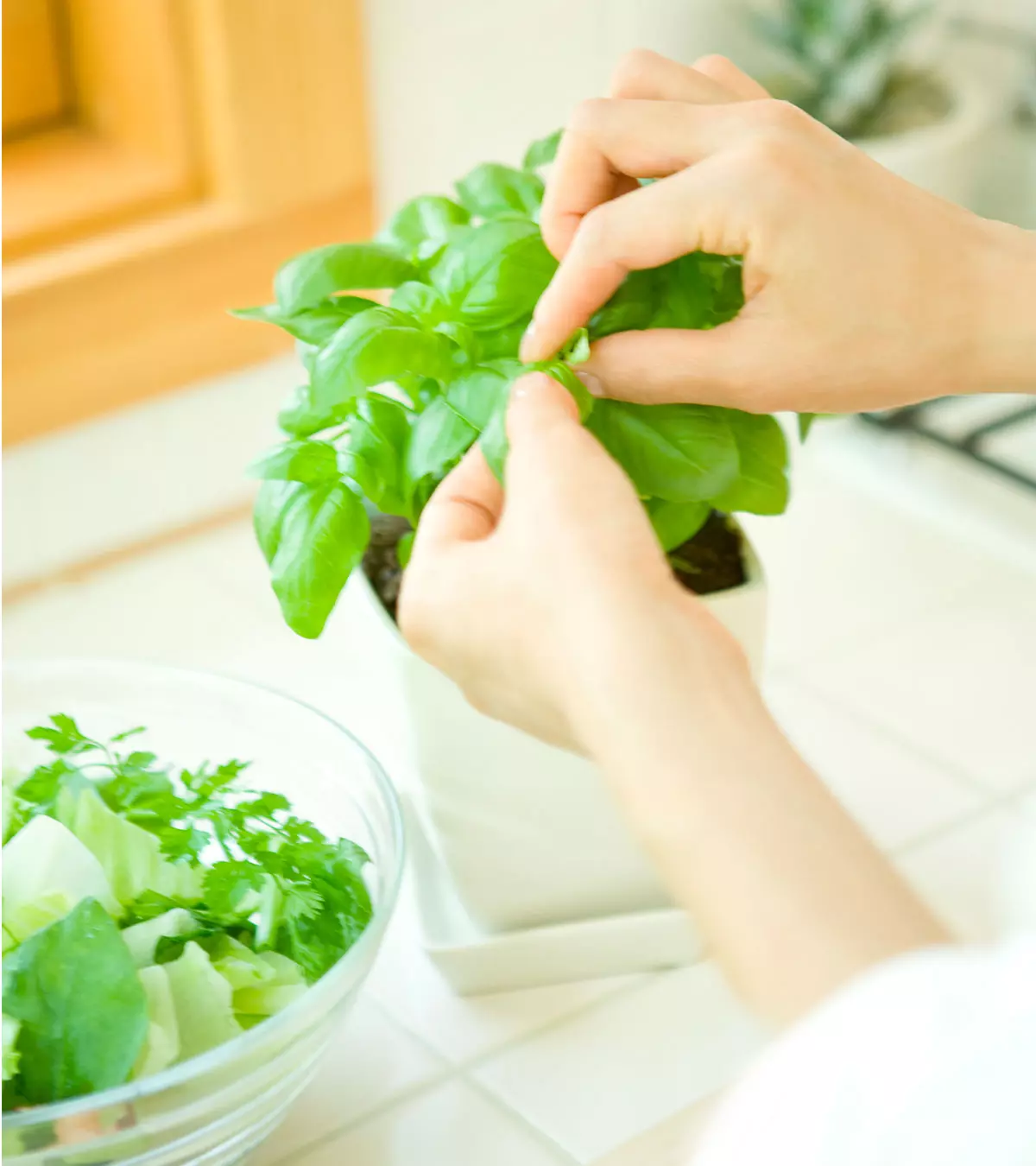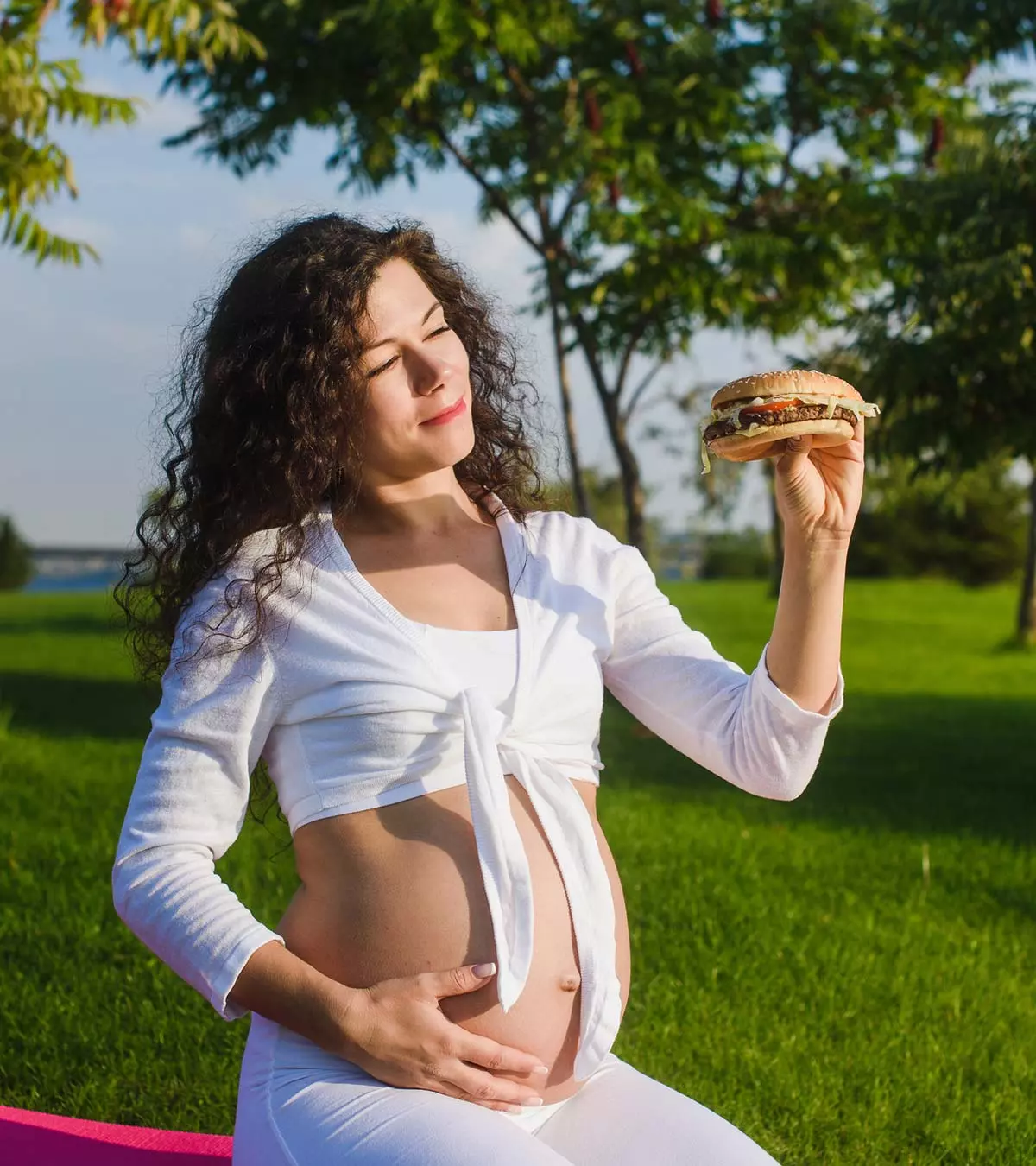
Image: i Stock
Pregnancy often triggers intense cravings, and fast food during pregnancy might seem like the perfect solution when hunger strikes. Many give into their cravings and opt for these meals as they offer convenience during this busy time. But it’s important to remember that these foods can negatively impact both maternal and fetal health. The high content of unhealthy ingredients and additives while lacking essential nutrients make these foods a bad choice. Excessive weight gain, gestational diabetes, and nutritional deficiencies are a few problems associated with junk food consumption during pregnancy. It may also contribute to developmental issues in the baby. Read on to discover the reasons why limiting junk food during these nine months could be one of the most important dietary decisions you’ll make for you and your baby’s health.

Key Pointers
- Consuming junk food during pregnancy may increase the risk of allergies and genetic abnormalities in the fetus.
- Regular consumption of junk food can cause pregnant women to gain excessive weight, leading to issues such as preeclampsia, obesity, and gestational diabetes.
- Junk foods are high in salt and sugar, which are not recommended for pregnant women.
- Junk food can also cause nutrient deficiencies, indigestion, and bloating during pregnancy.
- Therefore, pregnant women should opt for a variety of healthy and tasty foods to reduce their cravings for junk food.
Why Should You Limit Eating Junk Food During Pregnancy?
You and your baby need a good amount of nutrients during pregnancy for healthy weight gain in you and proper development of brain, bones, organs and immune system in your baby (1).
Junk food is low in nutritional value and doesn’t provide enough nutrients for good maternal health during pregnancy (2). If you fill up on junk foods, there’s little room left to eat the nutritious food you need (3).
 Did you know?
Did you know?Here are the possible ways junk food may affect you and your baby.
- The baby develops a liking for fatty foods: A study published in Frontiers in EndocrinologyiThe study of hormones, endocrine glands, and organs. explains how a mother’s diet can influence her baby’s food preferences
The study, which was carried out on pregnant rats, revealed that the rats that ate high-fat food during pregnancy had heavier pups, which preferred fatty foods. Their brain circuitry got altered to have a weakness for fatty foods throughout their adulthood. However, a balanced diet showed a lesser craving for fatty foods in the rat offspring (5).
- There may be an increased risk of allergies: High sugar content in the diet can lead to allergies and asthma. As per a study published in the European Respiratory Journal, children of women who had ’free sugars’ (added sugars) in the form of sucrose, high fructose corn syrup, fruit juices or honey in their diet during pregnancy, had an increased risk of allergy and asthma between the ages of 7 and 9 (6). Hence, monitoring the intake of sugar in pregnancy is essential.

- Chances of genetic abnormalities may increase: A study on pregnant rats found that the mother’s high fat or sugary foods had impaired peripheral insuliniA hormone produced in the body that regulates blood sugar levels. signaling at mitochondrial mitochondrial dysfunctioniWhen the mitochondria fail to function properly as a result of another disease or condition. in the female offspring. And this passed on to the next three generations (7).
- May result in an increased in-take of acrylamide: According to the US Food and Drug Administration, AcrylamideiA natural chemical used to make plastics, treat wastewater, among other things. is a chemical that may be formed when foods are fried at very high temperatures, such as french fries, potato chips and other fried foods in the category of junk (8). Studies have found that a higher level of acrylamide can lead to smaller head circumference and low birth weight in babies (9).
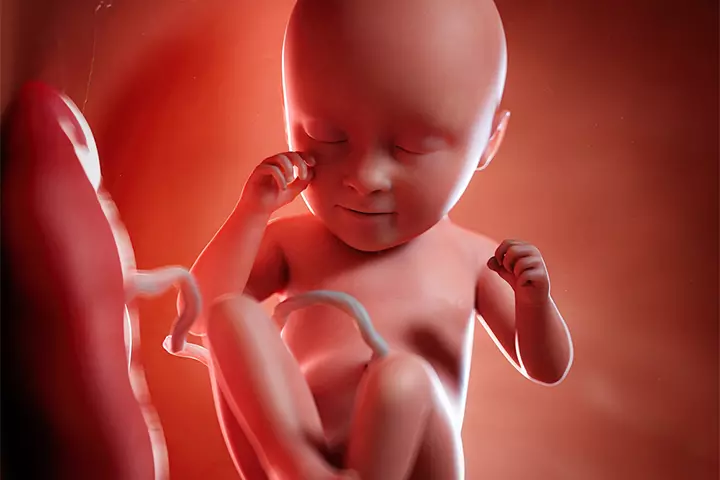
- The chances of gaining excess weight might be higher: Too much junk food during pregnancy can lead to excessive weight gain (4). Experts at the American College of Obstetricians and Gynecologists state that obesity puts the pregnant woman and the baby at the risk of various complications, including preeclampsiaiA condition in pregnancy marked by high blood pressure and a rise in protein in the urine. , birthing a large baby, preterm labor, gestational diabetes, sleep apnea, increased risk of congenital disabilities, miscarriage, and stillbirths (10).
- Junk foods have zero nutritional value: Many foods we consider junk are high in sugar, salt, fats, and cholesterol, which should not be eaten in excess during pregnancy (3).
- Might lead to digestive problems: An excessive intake of deep-fried food may upset your stomach. It might cause gas, bloating, and indigestion. Also, many junk foods lack fiber content, which is essential for smooth bowel movements (11).

 Be watchful
Be watchful- Risk of gestational diabetes increases: Junk foods are often high in sugar and calories. Studies have revealed that the consumption of junk food increases the risk of gestational diabetes (12). According to the US Centers For Disease Control And Prevention (CDC), gestational diabetes affects around 5-9% of pregnancies annually in the United States (13).
- Exposure to harmful chemicals: Plastic chemicals called phthalates can transfer from packaging, wrappers, and even food handlers’ gloves into food (14). When eaten by a pregnant woman, these chemicals enter her bloodstream, cross the placenta, and reach the baby (15). Research from the National Institutes of Health found that exposure to multiple phthalates during pregnancy increases the risk of preterm birth. The report by National Institute of Health states, “Researchers analyzed data from a total of 6,045 pregnant women who delivered between 1983-2018. Nine percent, or 539, of the women in the study delivered preterm. Phthalate metabolites were detected in more than 96% of urine samples (16).”
Limiting your intake of junk foods may be easier said than done. Read on as we share some tricks to manage cravings.
How To Control Junk Food Cravings?
First decide that you want to eat healthy foods during your pregnancy to increase the health of you and your baby.
- Stock your shelves with healthy snacks: Avoid junk foods, high-calorie snacks, soft drinks, or processed foods, and replenish your kitchen shelves with natural and healthy snacks. Baked foods are healthier than fried foods. Bake foods at home and enjoy your snacks without any food additives and preservatives.
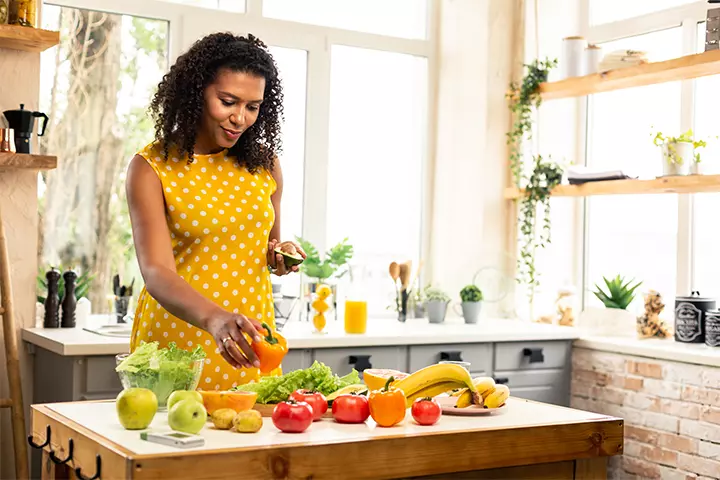
- Snack on fruit and nuts: Whenever you feel like munching, snack on dry fruits and fresh fruits. They will satiate your hunger as well as provide you with essential nutrients.
Mahima Satvik, a new mom and blogger, shares her tried and tested tips on healthy snacking during pregnancy. She says, “Hunger pangs struck me at the oddest hours. So, I always had a stash of healthy snacks — nuts, fruits, yogurt, and granola bars. Having them handy prevented me from reaching out for junk food (i).”
- Choose your foods sensibly: What you eat is what your baby gets. Make a list of foods that you eat and identify their nutritional content. This can greatly help you be more aware of the content of the foods. Snacking on a chocolate or pizza slice once a while will do no harm to your body or the baby. However, try not to make it a daily habit.

Get smart and cook some dishes at home to satiate your food cravings during pregnancy. Here are the alternatives if you have a craving for:
- potato chips or such stuff – go for baked kale chips, beet chips or dried seaweed.
- cakes and candies – snack on bananas, apples or any other fruit paired with almond butter or a drizzle of melted chocolate.
- ice creams – fruity yogurt or ice cream made with bananas.
- burger and fries – grilled chicken salad
And, if you want to opt for eating out, then here are some meal options that can help ensure food safety (17):
- Stir-fried chicken or seafood, which is light on the oil and sauces
- A whole wheat roll-up or wraps without mayonnaise and with salad
- Two slices of vegetarian pizza with a green salad as side dish
- Brown rice or whole-wheat pasta with tomato based sauce
- Clear soups
- Avoid salads with creamy or oil-based dressings as they can be very high in fat.
4. Meal prep and plan ahead: Planning meals in advance can help you avoid last-minute unhealthy choices. Prepare and store healthy snacks in small portions, and cook meals in batches to reduce the temptation of ordering fast food. Additionally, always carry a small, nutritious snack when going out to prevent impulsive junk food purchases.
Frequently Asked Questions
1. Why do I crave fast food when pregnant?
According to a recent medical study, the neuronal mechanism induces dopaminergic circuits during pregnancy and results in food cravings (11).
2. Will my junk food cravings go away during pregnancy?
Pregnancy food cravings can start as early as the fifth week of pregnancy and eventually end by the third trimester (12).
3. Can junk food lead to pregnancy complications or birth defects?
No scientific evidence shares a direct link between consuming junk food and pregnancy complications or congenital disabilities. However, regular or excessive junk food intake could cause unwanted weight gain (obesity), which can raise the risk of congenital abnormalities and other pregnancy complications such as stillbirth, macrosomia, and preterm birth (4).
4. Can eating junk food during pregnancy lead to obesity in the baby?
Overconsumption of junk food during pregnancy may lead to high fetal birth weight (macrosomia). High fetal weight may slow labor and increase the chances of medical interventions during delivery. Therefore, maintaining a healthy weight during pregnancy is crucial (4). So, learn about some healthy foods to eat during pregnancy and use them in preparing nutritious meals.
5. What are some easy meal prep ideas for pregnant women to avoid junk food?
Make batches of hard-boiled eggs, overnight oats with fruit, and pre-cut vegetable containers with hummus. Cook extra portions of chicken or salmon with whole grains and vegetables. Prepare and freeze healthy soups and stews. Keep washed fruits and individual servings of Greek yogurt ready for quick, healthy snacks.
Junk food might seem tempting, and you may crave them quite often. However, regularly eating fast food during pregnancy might not be a good option. Pregnant women require nutrient-dense foods to nourish themselves and their babies. Junk food is low in nutrition and may increase the risk of complications such as gestational diabetes and digestive problems. Some great healthy snack alternatives are fruits, nuts, and yogurt. Nevertheless, eating a burger or pizza once in a while won’t harm you. Enjoy your pregnancy, pamper yourself occasionally, and remember to take care of your health.
Infographic: Alternatives To Junk Food
Excerpt: It is common to have cravings for junk food during pregnancy. However, it is usually recommended to avoid junk food while expecting due to the health risks. Therefore, we suggest you save this infographic as it lists the healthy alternatives to junk food.
Some thing wrong with infographic shortcode. please verify shortcode syntax
Personal Experience: Source
MomJunction articles include first-hand experiences to provide you with better insights through real-life narratives. Here are the sources of personal accounts referenced in this article.
i. My Top 25 Tried-and-Tested Hacks for a Blissful Pregnancy Journey.https://medium.com/@mahima.satvik/navigating-pregnancy-blissfully-25-tried-and-tested-hacks-ae153ed78fe
References
- Afsana Naaz and Komal N Muneshwar; (2025); How Maternal Nutritional and Mental Health Affects Child Health During Pregnancy: A Narrative Review.
https://pmc.ncbi.nlm.nih.gov/articles/PMC10719542/ - Magdalena Mititelu et.al; (); Evaluation of Junk Food Consumption and the Risk Related to Consumer Health among the Romanian Population.
https://pmc.ncbi.nlm.nih.gov/articles/PMC10459196/ - Junk food.
https://www.pregnancybirthbaby.org.au/junk-food - Julie Paradis et al.; (2017); Perinatal Western Diet Consumption Leads to Profound Plasticity and GABAergic Phenotype Changes within Hypothalamus and Reward Pathway from Birth to Sexual Maturity in Rat.
https://www.frontiersin.org/journals/endocrinology/articles/10.3389/fendo.2017.00216/full - Annabelle Bédard et al.; (2017); Maternal intake of sugar during pregnancy and childhood respiratory and atopic outcomes.
https://publications.ersnet.org/content/erj/50/1/1700073 - Jessica L Saben et al.; (2016); Maternal Metabolic Syndrome Programs Mitochondrial Dysfunction via Germline Changes across Three Generations.
https://pmc.ncbi.nlm.nih.gov/articles/PMC4957639/ - Acrylamide and Diet Food Storage and Food Preparation.
https://www.fda.gov/food/process-contaminants-food/acrylamide-and-diet-food-storage-and-food-preparation - Talita Duarte-Salles et al.; (2013); Dietary Acrylamide Intake during Pregnancy and Fetal Growth—Results from the Norwegian Mother and Child Cohort Study (MoBa).
https://ehp.niehs.nih.gov/doi/10.1289/ehp.1205396 - Is It Safe To Consume Junk Food In Pregnancy?
https://www.ifwip.org/junk-food-pregnancy-fast-food/ - Obesity and Pregnancy.
https://www.acog.org/womens-health/faqs/obesity-and-pregnancy?utm_source=redirect&utm_medium=web&utm_campaign=otn - Here’s How Fast Food Can Affect Your Body.
https://health.clevelandclinic.org/heres-how-fast-food-can-affect-your-body - Ligia J. Dominguez et al.; (2014); Fast Food Consumption and Gestational Diabetes Incidence in the SUN Project.
https://journals.plos.org/plosone/article?id=10.1371/journal.pone.0106627 - Gestational Diabetes.
https://www.cdc.gov/diabetes/about/gestational-diabetes.html#:~:text=Overviewpregnancy%20and%20a%20healthy%20baby. - Pregnant women should avoid ultraprocessed, fast foods.
https://newsroom.uw.edu/news-releases/study-pregnant-women-should-avoid-ultraprocessed-fast-foods - Why You Should Avoid Fast Food During Pregnancy.
https://rightasrain.uwmedicine.org/body/food/phthalates-exposure-ultraprocessed-food-during-pregnancy - Preterm Birth More Likely With Exposure To Phthalates.
https://www.niehs.nih.gov/newsreleases/preterm-birth-more-likely-with-exposure-to-phthalates - The Pregnancy Food Guide.
https://www.brighamandwomens.org/assets/BWH/obgyn/pdfs/nob-bwh-pregnancy-food-guide.pdf - The neuronal mechanisms responsible for food cravings during pregnancy are identified
https://www.clinicbarcelona.org/en/news/the-neuronal-mechanisms-responsible-for-food-cravings-during-pregnancy-are-identified - Pregnancy FAQs
https://www.nhs.uk/start-for-life/pregnancy/
Community Experiences
Join the conversation and become a part of our nurturing community! Share your stories, experiences, and insights to connect with fellow parents.
Read full bio of Claudia Wilson
Read full bio of Swati Patwal
Read full bio of Rebecca Malachi
Read full bio of Aneesha Amonz








